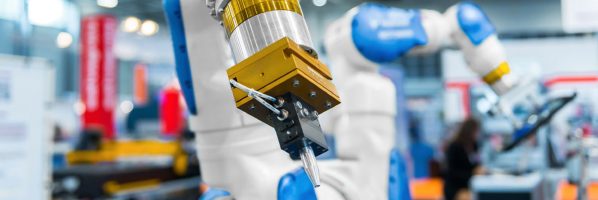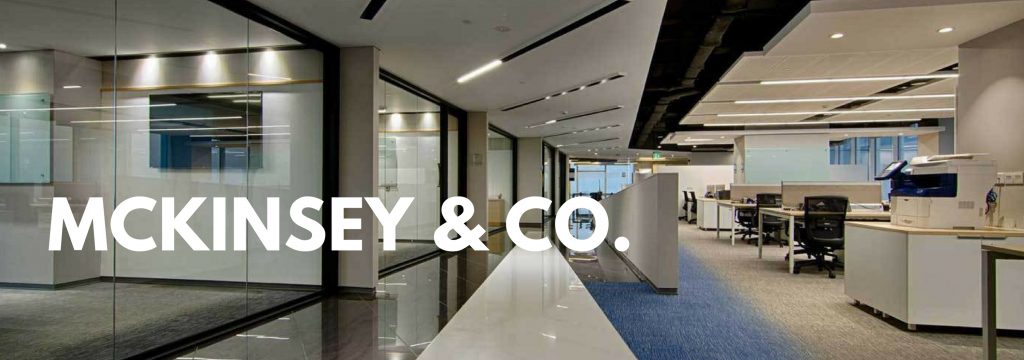New MBA Jobs: BCG, Merck, Adobe and More

There are hot new MBA jobs that need to get filled each and every week all over the world. Here are a few new openings for entry level and advance positions at a range of companies, and don’t forget to check out the best new MBA jobs right here on MetroMBA every week.
Happiness, Net Worth, and Materialism – Chicago News

Let’s explore some of the most interesting stories that have emerged from Chicago business schools this week.
How To Be Happy Without Earning More – Booth Business Blog
The University of Chicago Booth School of Business recently published a lengthy profile that explores “hedonomics,” a term that professor Christopher K. Hsee appropriated to use as a “counterpart” to traditional economics, which studies how “to extract more happiness from the existing stuff.”
Hsee explains, “Our ancestors had to work to accumulate enough to survive. But now productivity is so high, we don’t need to work so hard for survival.”
In 2008, Hsee and his Booth compatriot Reid Hastie “redefined” the term from its original meaning as the “study of ways to interact with machines.” The article explains that “their version of hedonomics is premised on the idea that people don’t need more resources to be happier; they need to use existing resources differently,” such as a child who grows weary of wooden blocks they initially enjoyed. “Hedonomics suggests the child doesn’t need more blocks to be happy; she needs to change how she plays with those blocks.”
One component of hedonomics is the “hedonic treadmill,” coined by Northwestern’s Philip Brickman and Lehigh’s Donald T. Campbell, which refers to the psychoeconomic effect of what happens when it “takes more and more things to make people happy.”
According to the article, “The hedonic treadmill fires up because people misunderstand what will actually make them happy. [In fact], people gain more happiness when they satisfy their inherent rather than learned preferences—needs rather than wants.”
Hsee’s research could be useful in developing countries where the middle class continues to grow and more developed countries where the middle class has begun to diminish, particularly with the prospect of millions of people becoming idle due to automation looming in the background.
“You can make idle people happy by giving them a reason to ‘play with the existing blocks’ without accumulating more blocks.”
You can read more about hedonomics here.
Aric Rindfleisch’s Research Delves Into Reducing Materialism in Younger Consumers – Gies School of Business Blog
University of Illinois Gies College of Business Professor of Business Administration and Marketing Aric Rindfleisch, who researches consumer values, recently published a paper in the Journal of Positive Psychology, which presents “strategies for reducing materialism in younger consumers.”
According to the Gies School of Business Blog, “The impact of gratitude on adolescent materialism and generosity” has led to two studies that offered “fostering gratitude” as an effective strategy to combat materialism in adolescents.

Aric Rindfleisch, Gies College of Business Professor of Business Administration and Marketing
“In the first study, children and adolescents with a grateful disposition were less materialistic.” The second study found that ‘gratitude journals’ “significantly reduced materialism and also attenuated materialism’s negative effect on generosity.”
You can read more about Rindfleisch’s research here.
New Study Contradicts Notion That Electronic Health Records are Driving Doctors to Quit – Mendoza Ideas & News
Notre Dame Mendoza College of Business Professor of IT, Analytics, and Operations Corey Angst has coauthored a new study due for publication in Information Systems Research, which finds that electronic health records (EHRs) have “increased doctors’ tenure at hospitals.” This discovery stands in direct opposition to certain prominent articles, which assert that EHRs have caused doctors to retire.
“The Mobility of High Status Professionals after the Implementation of Enterprise Information Systems, which was coauthored with the University of Minnesota’s Brad Greenwood and McGill’s Kartik Ganju, examines how EHRs affect the “decision of physicians to continue practicing at their current hospital.”
Angst says, “Results suggest that when EHRs create benefits for doctors, such as reducing their workloads or preventing costly errors, their duration of practice increases significantly.”
“However, when technologies force doctors to change their routines, there is an obvious exodus, though it’s more pronounced with older doctors, especially specialists, and those who have been disrupted in the past by IT implementations,” he adds.
Angst notes that “doctors won’t be scared off as hospitals continue adopting new technologies — as long as they’re not too disruptive to routines.”
You can read more about the research here.
Which Business School Students Have the Top GMAT Scores?

A strong GMAT score is essential to a stellar business school application. Though the score is universally important to admission, certain schools emphasize a high score on the test more than others. Below, we’ve laid out a list of the 10 business schools with the top GMAT scores for incoming students.
Kellogg Investigates Impact of Automation on Smaller Cities, and More – Chicago News

Let’s explore some of the most interesting stories that have emerged from Chicago business schools this week.
How Will Automation Affect Different U.S. Cities? – Kellogg Insights
Northwestern University Kellogg School of Management‘s Hyejin Youn, an assistant professor of management and organization, just published new research in which she and her colleagues explore the unique industrial impacts of automation on different cities across the country.
Youn predicts that automation will have a more pronounced impact on smaller cities whose industries are populated by easily automated jobs (think card dealers, cashiers, and accountants). These cities are likely to experience a hollowed out middle class precipitated by “an exodus of workers, as well as exacerbated income inequality.”
According to the article, larger cities with greater “shares of managerial and knowledge professions (like lawyers, scientists, and software developers), [which] require knowledge and skills that cannot easily be taught to a machine, they will offset the total impact of automation.”
You can learn more about Youn’s research here.
More Than Jobs Than Job Seekers in Elkhart – Mendoza Ideas & News
Fox 26 Houston recently interviewed Notre Dame Mendoza College of Business finance professor Jason Reed about a fascinating discovery that there are “more job openings in Elkhart, Indiana, than there are workers to fill them.” According to recent Labor Department statistics, this news is indicative of the realities of many communities in the Midwest.
You can watch the entire interview below.
In many cities there are never too many job openings, but here’s one city where the economy is so good that there are more jobs than there are workers to fill them. Fox News’ @MattFinnFNC reports. pic.twitter.com/lwfBAhGaBz
— Ivory Hecker FOX 26 (@IvoryHecker) April 9, 2018
Are You Ready For Personalized Pricing? – Booth Business Blog
University of Chicago Booth School of Business professors Sanjog Misra and Jean-Pierre Dubé have published new research that many companies have begun exploring “personalized pricing” or tailoring their prices to individual customers—a practice that dates back at least 150 years to the days of haggling with Wanamaker’s sales staff but is relatively nascent in the era of Amazon.
According to the article, the researchers found that by “testing a range of introductory prices for online job board ZipRecruiter, the company could have more than doubled its standard price of $99, increasing revenues despite the smaller number of customers willing to pay more.”
The practice is not without potential controversy, as Dubé explains: “In markets where prices are transparent and customers can easily figure out what other people are paying, that’s where you run the risk of a backlash.”
Learn more about the duo’s research here.
The Connection Between Social Mobility and Democracy, and More – Chicago News

Let’s explore some of the most interesting stories that have emerged from Chicago business schools this week.
Is Social Mobility Essential to Democracy? – Kellogg Insights
Northwestern University Kellogg School of Management professor of managerial economics and decisions sciences Georgy Egorov, along with MIT Sloan’s Daron Acemoglu and Chicago Booth’s Konstantin Sonin, recently created a model to understand how voters’ beliefs about social mobility affect their political preferences.
Despite older generations becoming increasingly less optimistic with the potentially positive outcomes of future generations, the researchers find that there’s a decent probability that the children of future generations will rise to a higher economic and social class.
“Having many election cycles means that even with low mobility, the likelihood that a person’s decedents will eventually end up in another class is high. Egorov compares it to two lakes connected by a narrow straight. In the short term, they will not exchange much water. But over the long term, that small exchange will grow and grow until the waters are quite mixed.”
Speaking with Kellogg Insights, Egorov elaborated:
“In a certain sense, expectation of stability begets stability. A thick middle class makes democracy more stable than a thin one. Our research highlights the problems that may follow from a shrinking or thin middle class. Additionally, if the belief in the stability of democracy is undermined, people might well decide it’s not worth defending.”
You can read more about the trio’s research here.
Mendoza Marketing Professor Wins Research Award – Mendoza Ideas & News
The 2018 Louis W. Stern Award has officially been bestowed upon Shankar Ganesan, the John Cardinal O’Hara, C.S.C., professor of business and marketing department chair at the Notre Dame University Mendoza College of Business.
The award recognizes Ganesan, as well as co-authors Steven P. Brown of the University of Houston, Babu John Mariadoss of Washington State and Hillbun (Dixon) Ho of University of Technology Sydney for a 2010 article they published in the Journal of Marketing Research entitled, “Buffering and Amplifying Effects of Relationship Commitment in Business-to-Business Relationships.”
According to the article, “The paper examines the buffering and amplifying effects of relationship commitment on organizational buyers’ intentions to switch suppliers when a relationship is strained by the incumbent’s own misbehavior. “
Check out more from Ganesan’s research here.
The Road Ahead: Takeaways from Economic Outlook 2018 – Chicago Booth Magazine
Chicago Booth Magazine recently dove into the sold-out ‘Economic Outlook 2018’ event last January to “evaluate emerging trends [and] share their insights into the economic outlook for Wall Street and Main Street—ten years after the financial crisis.”
Randall S. Kroszner, the Chicago Booth Norman R. Bobins professor of economics, offered a few optimistic projections:
“I do think [the tax cut] is going to have a positive impact, both in the short run and the long run. I think the broad direction is fairly clear: cutting personal tax rates on a weighted average, of about three percent or so, will have positive impact on demand, because that’s going to allow for higher disposable income in the short run.”
Austan D. Goolsbee, Robert P. Gwinn professor of economics and the former chairman of the Council of Economic Advisers, offered slightly more tempered but optimistic projections as well:
“The danger areas continue to be worries about China, where there has been a big acceleration of debt, and a nagging feeling that we really don’t know what’s in the European financial institutions. That said, the overall growth around the world is looking a little better, for the first time in a little while.”
You can read more about Booth’s ‘Economic Outlook 2018’ overview here.
In Search of the Best Chicago Internships for MBAs

Chicago is an ideal place to earn an MBA. In addition to having some of the strongest business schools in the country, the Chicago area is home to nearly 40 of the Fortune 500 companies. The bustling metro is also the financial and cultural hub of the Midwest, making it an ideal place for major corporations to set up large outposts. This means a wealth of internship program opportunities for MBAs at the start of their careers. So, for those with the gusto to live in the gustiest metro, the rewards can be huge. Below, we’ve laid out at which companies Chicago MBAs most often seek internships with.

Given Amazon’s involvement in nearly every industry, it is no surprise that the company is on the hunt for innovative MBAs to help maintain its dominance and status as the world’s greatest internet retailer. The mammoth corporation assigns interns a project for which they will partner with clients to glean true insight into the inner-workings of the company.
According to the Wall Street Journal, “Amazon took in more interns from the University of Chicago’s Booth School of Business than either Bain & Co. or McKinsey & Co., which were until recently the school’s top hirers of interns …” Amazon also offers many interns the opportunity to come back to work at the company full-time.
Just last year, Amazon was a major player in hiring Chicago Booth School of Business MBA graduates and interns. Twenty-six graduates managed to earn a full-time job with the company, while an impressive 33 interns joined its ranks, which was the single highest total among all companies that employed Booth interns.
The companyalso brought in students from nearby Indiana. Several Class of 2018 MBA students from the Notre Dame University Mendoza College of Business earned vital internship program experience at Amazon, which often leads to direct hiring.

Many of the companies hiring MBA interns offer exposure to retail, tech, and financial services, or consulting. But Abbott Laboratories, headquartered in Lake Bluff, Illinois, is a popular internship destination for MBAs interested in pursuing a career in pharmaceuticals. The Commercial MBA Internship allows interns to get their foot in the door of this massive and growing industry.
Several MBAs at the Kellogg School of Management at Northwestern University joined Abbot Laboratories, according to the school’s most recent employment report, joined the company’s summer internship program.

Deloitte, which has a Chicago office located right near the iconic Willis Tower, employs 40,000 people in the U.S. The company’s Client Service Internship can take place throughout the course of a semester or over two months during the summer. Consulting tends to be a popular area of focus for MBA grads, but Deloitte also offers a plethora of opportunities for advanced degree students interested in financial sectors such as auditing and tax. Depending on their interests and professional backgrounds, interns can join a client service team in Deloitte & Touch LLP, Deloitte Tax LLP, Deloitte Risk and Financial Advisory, or Deloitte Consulting LLP. According to The Balance, summer interns at Deloitte can make anywhere from $3,850-$12,000 per month. Deloitte also made Fortune’s list of “25 Top MBA Employers.”

Around 50 percent of McKinsey & Company’s incoming hires have MBA degrees, so business school recruiting is a high priority for the mega firm. The consulting giant—which now has over 120 offices worldwide—was actually founded in Chicago in the 1920s, so it makes sense that the company is one of Chicago metro’s most active MBA recruiters. Though gaining entry to the elite consulting firm is extremely competitive, both University of Chicago’s Booth School of Business and Northwestern University’s Kellogg School of Business have been able to claim the company as one of the top places their MBA students land for internships and full-time employment after graduation.
In fact, no company hired more Booth grads than McKinsey and Co. The company managed to snag a staggering 48 employees from the business school last year, which accounted for nearly 10 percent of the entire Booth MBA Class of 2017. Not so surprisingly, McKinsey also brought in 26 Booth interns within the same year—the second most among any employers in that time frame.
So, what should an MBA at in the McKinsey internship program expect? According to the firm’s website, MBA interns “… join us as associates, working either as generalists or practice consultants if they have and area they’d like to focus on.”
